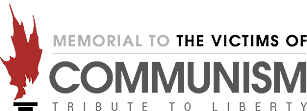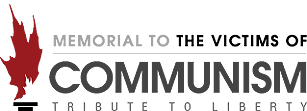
In memory of the Matukynas-Anskis Families
We have been accustomed to hear many stories of families ripped apart, their homes invaded at night, parents and children taken to the railroad and thrown into cattle cars. However, a Canadian never having experienced the horrors of war cannot describe the utter sinking of the soul when one searches and finds papers documenting the accusations of a neighbor on his neighbor - my mother’s brother. After the parents of Antanas Matukynas died one after another, as the eldest he had no choice but become the head of a family of 12 brothers and sisters, including eventually four young ones of his own.
In the archival material the neighbor is reporting that his neighbor was a bourgeois who had one pig and one cow. For this my uncle together with other members of the family was declared an enemy and was marked for deportation.
They awaited their fate. To save his two daughters from deportation, they kept shuffling them at night from relative to relative. The sons were not spared when the KGB arrived at night, found the parents and the two sons, shoved them into cattle cars and sent them to the labour camp in Irskutsk. The work was hard with very little medical help – he lost an eye.
The two daughters were raised by their aunts. When the youngest daughter turned 14, she and her older sister went by train – duration of a whole month - to visit their parents. The older one returned to Lithuania, but the younger one – having missed the parents too much – remained. Having been left behind as a five-year old, she says that she would never leave her son behind, no matter what the exile holds.
The second member of this family in his attempt to escape deportation lost his arm on the railroad tracks. Middle member of the family was also hunted out and deported, together with her newly married husband – never to see him again. She got lost in the forest to be found 2 weeks later – her sister took a week to pull out bugs that had crawled under her skin. She survived – found berries and learned to eat the bark of trees. When she finally returned home, she slowly became a mental invalid fearing even the slightest dash of red colour and uncovered windows – still fearing the red army breaking into her home. The youngest member of the family to this day stays inside and has draped these fears on her children. The later too moved from house to house during the red army search of the Matukynas family.
My dad Vaclovas Anskis fought against one invader, then another and the return of the third invader. The red army came to arrest him three times, but after the third escape, he decided to go underground. My mother Ona Matukynas insisted on joining him. However, my dad did not want to leave his two young children without a mother and consented to flee. Burying all their photos, documents and valuables, his family together with his sister’s family, started on their flight. Many times on the flight they debated whether to turn around. The debates were very brief – his sister’ family hesitated by a mere half a day until the red army caught up to them and sent them back. Then there was no turning back – instead their whole energy concentrated on moving west as quickly as possible.
On their flight my mother burned her legs while trying to get a horse out of the barn. On hearing the planes my dad would grab the two children one under each arm and head to the ditch. With my mom’s legs very much infected she had no choice but to stay on the wagon road and await her fate. (To this day the holes on her legs are very much a reminder of their flight.)
None of my parents’ relatives were able to escape. My dad was determined to leave behind a legacy for his children and grandchildren. In his adopted country of Canada my dad wrote copiously about his life during the war and after the war. In his writing he rallies against communism and the red army. And his family and grandchildren do not forget.
His children Vida and Raymond, his grandchildren Ona Stanevicius Mills and Matas, and his three great grandchildren Audra and Daiva Stanevicius Mills and Lara Stanevicius are all very much active in, not only their Lithuanian community, but Canadian as well.
There is no monument or memorial of communism’s horrors committed against humanity – horrors which are still being committed today. And we – the world - still merely watch as it did during and after the Second World War. And the horrors continue.
As narrated by Vida Anskis Stanevicius

